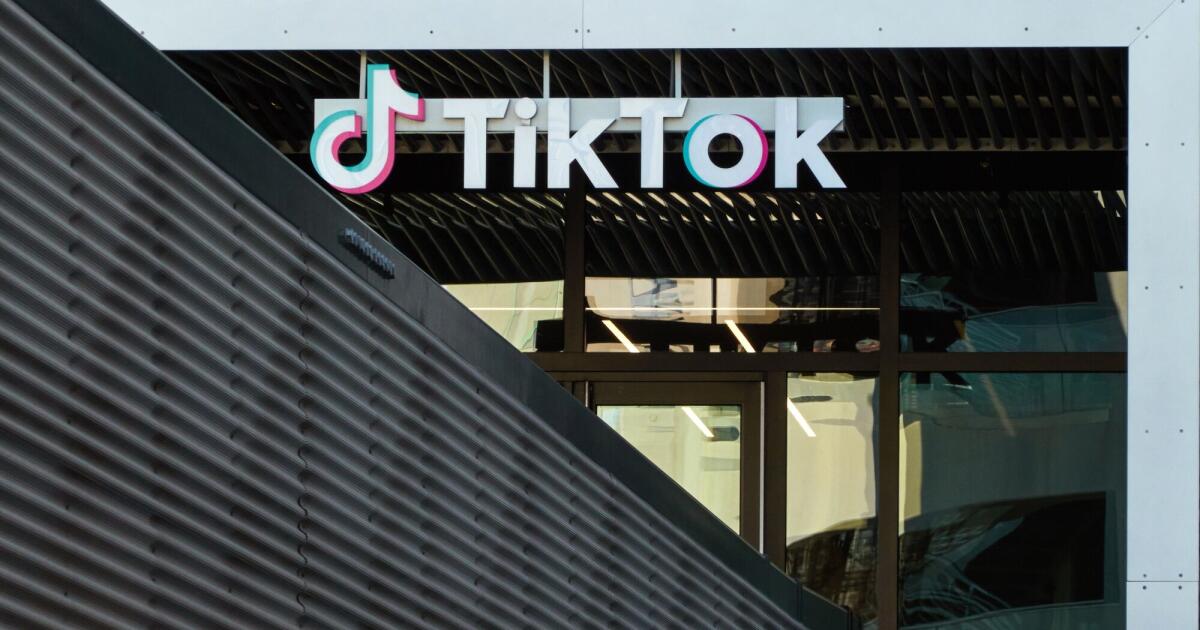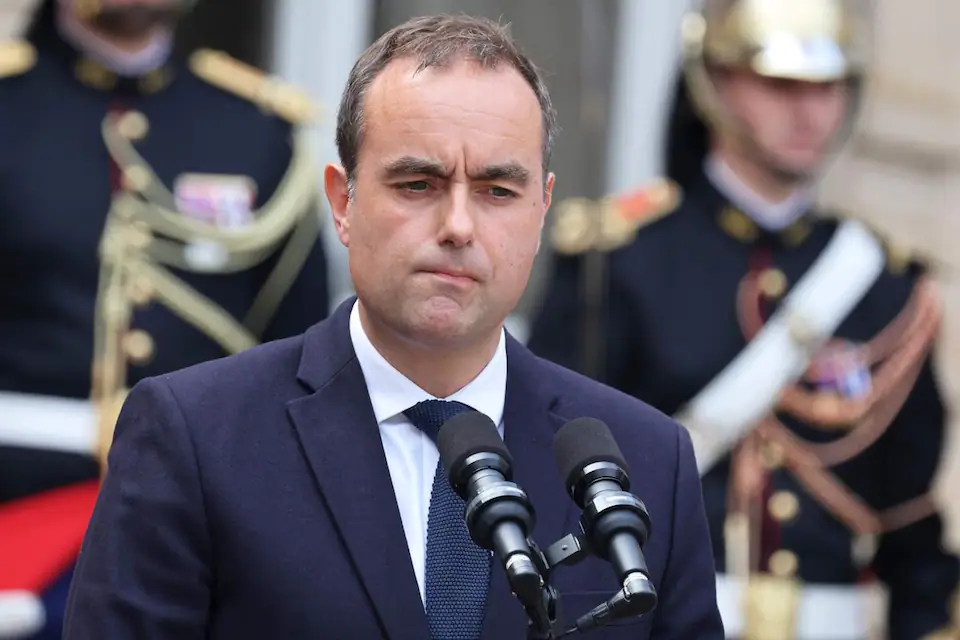
TikTok’s US operations would be acquired by a consortium that includes Oracle Corp., Andreessen Horowitz and private equity firm Silver Lake Management LLC under a deal President Donald Trump is set to discuss with Chinese President Xi Jinping this week.
The framework agreement, unveiled on Monday by senior US and Chinese officials after two days of talks in Madrid, would create a US-based version of the popular social media app. Oracle, venture capital firm Andreessen and Silver Lake will all hold stakes in the new venture, according to people familiar with the matter.
If finalized, a deal will resolve a sticking point in Beijing-Washington relations and help shape the fate of China’s most valuable private company — a $400 billion startup whose video product gained some 170 million mostly young American users before getting labeled a threat to national security.
Under an initial agreement, ByteDance Ltd.’s stake in TikTok would fall below 20% to satisfy a 2024 US law that required the Beijing-based company to divest or face a ban in the American market. Once finalized, the app’s users would migrate to a new platform, a person familiar with the contours of the deal said.
TikTok’s US engineers have been testing that app, which will replicate the recommendation algorithms that made the platform so popular in the first place, the person said. As part of the framework agreement, ByteDance will license the technology behind that, a Beijing official has said.
On the US end, the deal calls for Oracle to continue providing cloud services for TikTok, a business that’s become a steady source of revenue for the Austin-based company. Oracle already works with TikTok to host user data in the US and other countries as part of a multibillion-dollar partnership TikTok has dubbed Project Texas.
But many other unknowns persist — not least the price tag attached to one of ByteDance’s most lucrative businesses. The US operations have been valued at about $35 billion to $40 billion, though tech valuations have climbed rapidly with the advent of the AI boom.
It’s also unclear how much each prospective investor would acquire under the deal. Oracle, for instance, plans to take a small stake in the new venture, according to one of the people.
The US company’s shares rose as much as 5.9% in New York on Tuesday, before giving up most of those gains. The stock is up 84% so far this year thanks to its ascendant cloud infrastructure business.
A senior White House official said that any details of the framework agreement should be regarded as speculation unless announced by the administration. Representatives for TikTok, Oracle, Andreessen and Silver Lake didn’t respond to requests for comment.
More than a year in the making, a final deal will allow TikTok to remain operating for US users — though it deprives ByteDance of control of a key overseas asset, at a time it seeks users and traffic to drive broader endeavors in AI and commerce.
The law signed last year by then-President Joe Biden stipulates that ByteDance cannot have any operational role, including with the algorithm, once a sale is completed.
Under the agreement, new outside investors would own 50% of TikTok’s US business in a unit that would be spun off from ByteDance. Its existing US investors would own about 30% of the new business, cutting the Chinese firm’s stake to just below 20% and allowing it to meet the ownership requirements of the US security law.
The plan largely tracks with a proposal that had come close to an agreement with ByteDance earlier this year but was derailed when China withheld its approval following Trump’s decision in April to impose sweeping tariffs on the world’s second-largest economy.
TikTok’s future became entangled in the broader negotiations between Washington and Beijing over trade. Had there been no agreement on TikTok, any in-person meeting between Trump and Xi later this year would have been off the table, according to a US official.
On Tuesday, Trump told reporters he had “a deal on TikTok” with the Chinese as he departed the White House for a state visit to the UK, but declined to name the companies involved. “I’m going to speak to President Xi on Friday to confirm everything up,” he said. “We made a very good trade deal, and I hope good for both countries.”
Specific terms of the agreement, and whether it would satisfy the requirements of the national security law, remain unclear. But the will to challenge Trump legally or politically over his approach to TikTok has waned. The president has credited the app with boosting his popularity among younger voters and sealing his comeback election win in November.
To buy time for the transaction to be completed, Trump postponed the deadline for ByteDance to divest TikTok’s US operations. Under the extension announced Tuesday — the fourth granted since January — the company has until Dec. 16 to forge a deal before a nationwide ban sets in.
Trump granted the reprieve even though the 2024 law allows for only one 90-day extension. That posture has defied bipartisan consensus behind the divest-or-ban provision — and has raised questions about whether the president’s repeated extensions have been legally sound.
Tuesday’s extension means TikTok can continue operating in the US while the administration takes more time to strike an accord with ByteDance on a “qualified divestiture” to a non-Chinese owner. Partners like Apple Inc. and Alphabet Inc.’s Google can also continue hosting the popular video app in their online stores.
Treasury Secretary Scott Bessent said in an interview with CNBC that the deal was similar to the commercial terms that had been negotiated earlier in the year and indicated that he believed Trump and Xi would finalize the accord this week.
“This deal wouldn’t be done without proper safeguards for US national security,” Bessent said. “It seems as though we were also able to meet the Chinese interest.”
–With assistance from Zheping Huang, Meghashyam Mali, Josh Wingrove, Hadriana Lowenkron, Alexandra S. Levine, Edwin Chan and Mark Anderson.
Ford and Wagner write for Bloomberg.



